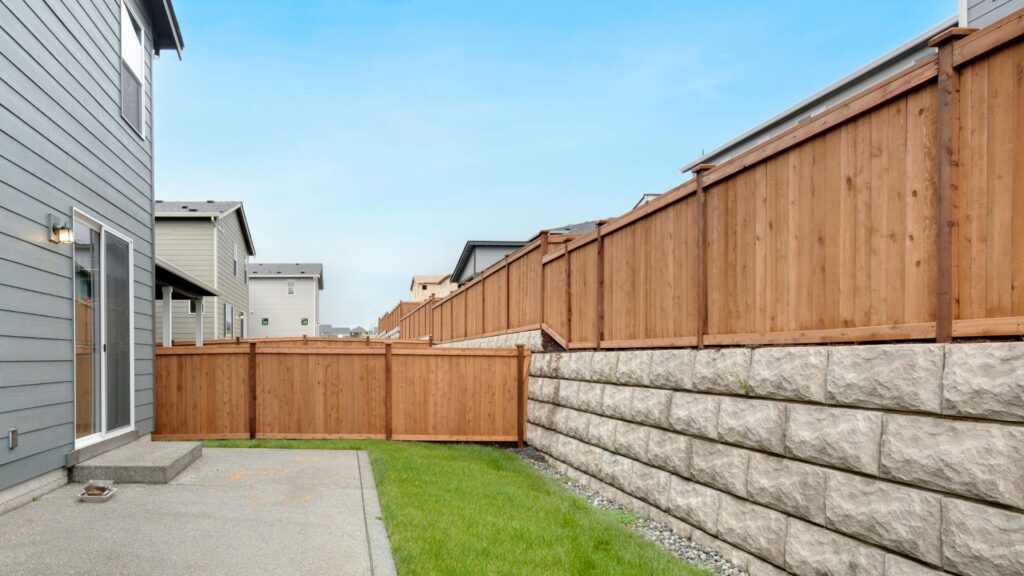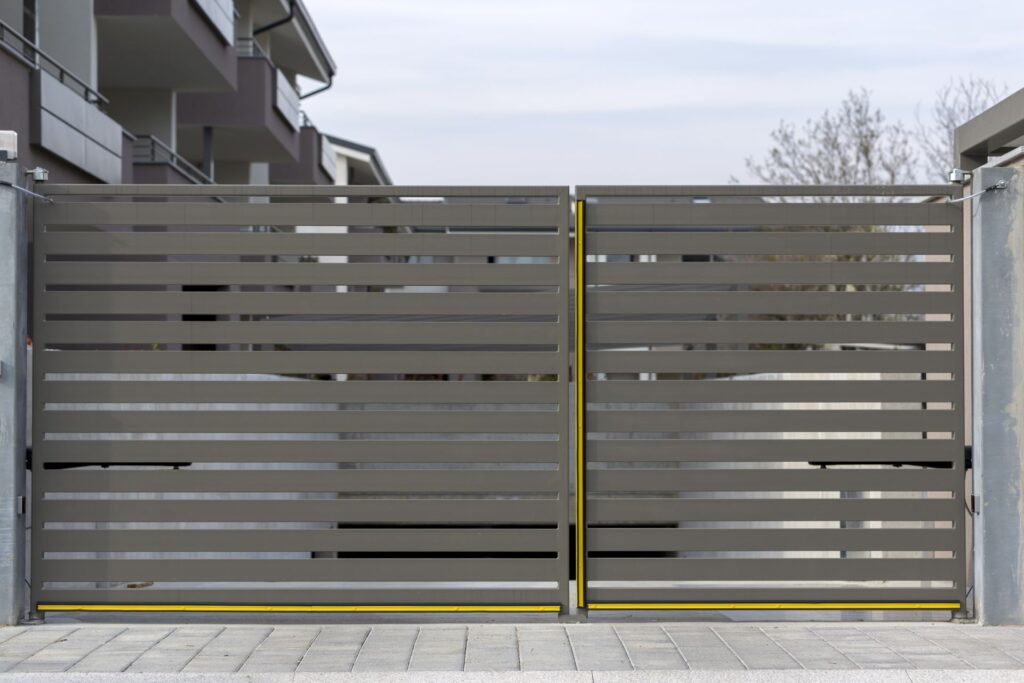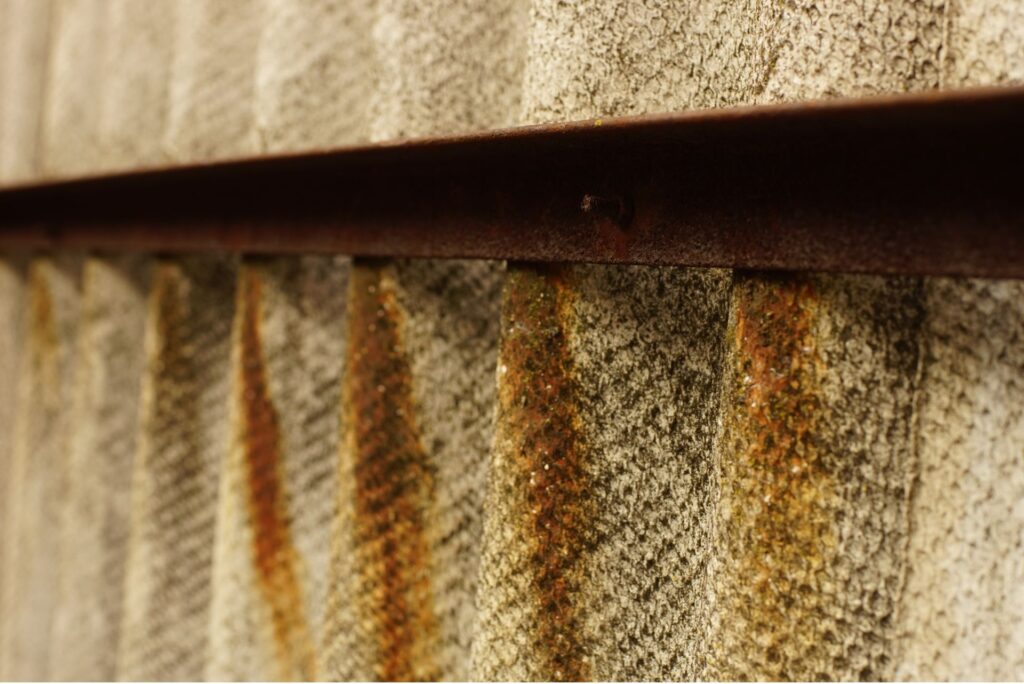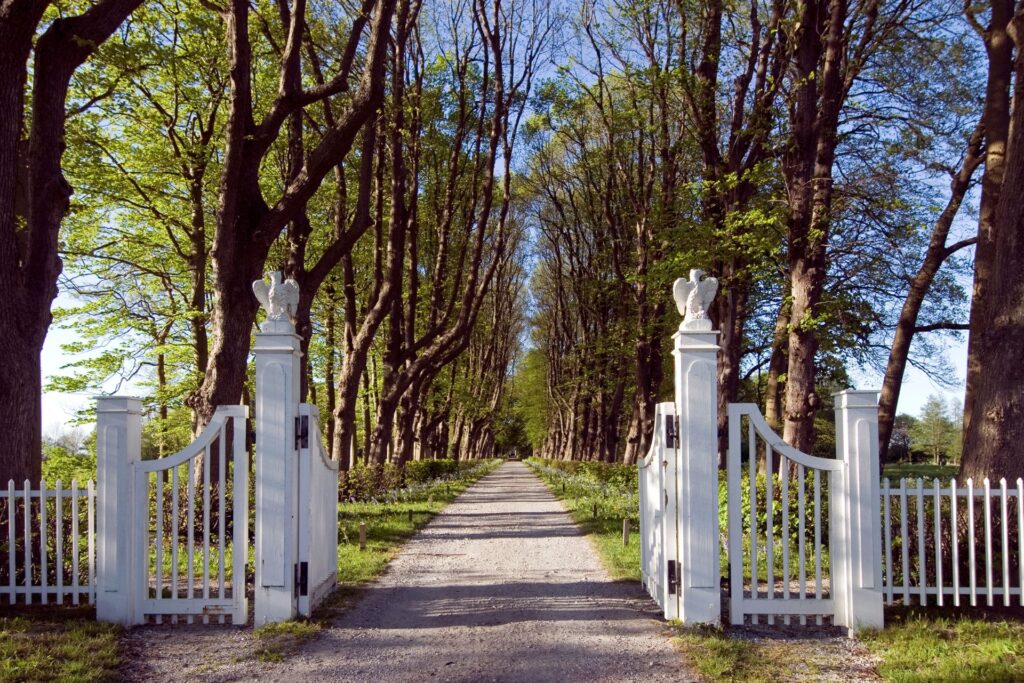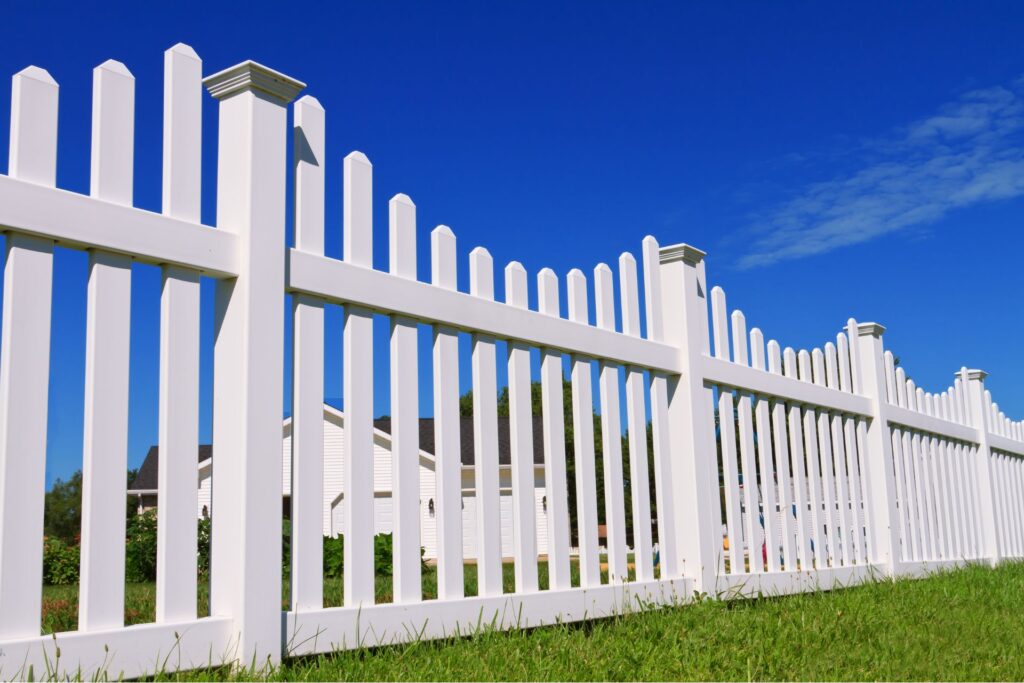Welcome to your go-to guide for understanding fencing costs in New Zealand. Whether you’re adding privacy, boosting security, or simply marking your property line, building a fence comes with one big question, how much will it cost? With so many materials, styles, and regional differences, it’s easy to feel overwhelmed. That’s where a fence cost calculator NZ can help. This tool gives you a fast, accurate estimate based on your location and project specs, saving you time and avoiding budget surprises. In this guide, you’ll learn what affects fencing prices, get average cost breakdowns, and see how to use a calculator the smart way.
A fence cost calculator NZ helps homeowners estimate fencing expenses based on material, length, height, and location. On average, fencing in New Zealand costs between $70 and $300 per metre, depending on the type, timber, PVC, Colorsteel, or chain link. Using a calculator provides a quick and reliable price range before getting quotes or starting DIY projects.
Fence Cost Calculator
Total Estimated Cost: NZD $0.00
Table of Contents
Why You Need A Fence Cost Calculator In NZ
Planning a fence project in New Zealand can be more complex than it looks. One of the first challenges you’ll face is figuring out how much the whole thing will cost. That’s where a fence cost calculator NZ becomes a valuable tool. It gives you a quick estimate without needing to contact multiple contractors or spend hours measuring and pricing materials.
Fence costs vary a lot across different regions, materials, and even terrain. For example, building a standard timber fence in Auckland might cost significantly more than in a rural area due to higher labour rates, demand, and accessibility. On the other hand, fencing a lifestyle block in Canterbury could cost more because of the total area involved and the equipment needed to reach remote spots. Every project is unique, and so are the costs.
If you’re planning to build a fence yourself, a calculator can help you price materials and estimate how much of each you’ll need. It lets you set a realistic budget from the start, avoiding last-minute surprises when you’re halfway through the project. For homeowners hiring professionals, the calculator gives you a rough idea of what to expect before requesting official quotes. That means fewer unexpected costs and a better understanding of what’s reasonable in your region.
Manual quoting often involves calling multiple fencing companies, waiting for site visits, or interpreting complex quotes. A fence cost calculator streamlines the process. You just enter the basics, material, length, height, and location, and you’ll get an instant ballpark figure. It’s a time-saver that puts control back in your hands.
In short, a fence cost calculator NZ helps you plan smarter, budget better, and reduce the guesswork whether you’re hiring help or building it yourself. It’s one of the best tools to start your fencing project on the right foot.
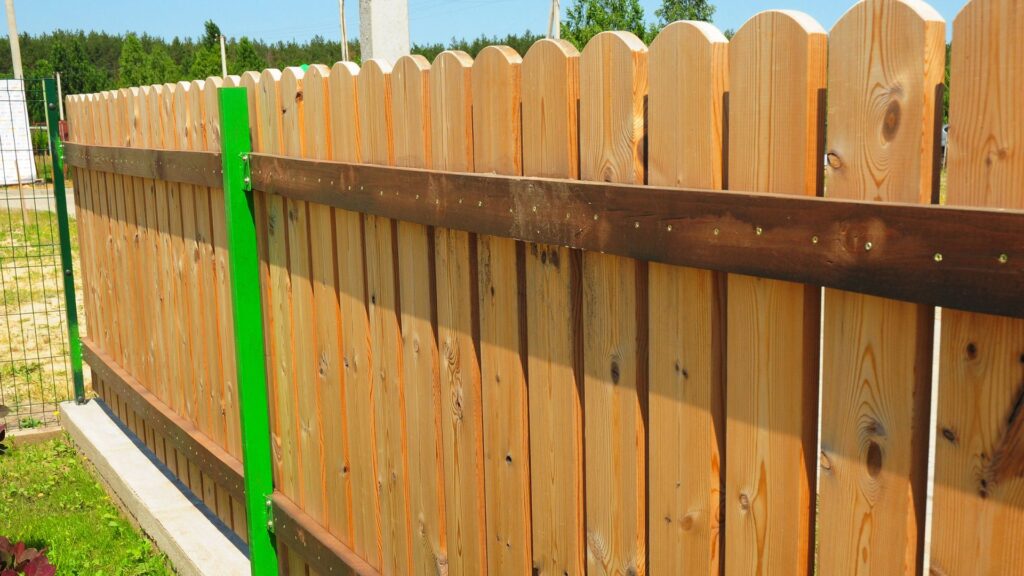
What Influences Fence Costs In New Zealand?
Before building a fence, it’s important to understand what drives the total cost. Many people assume fencing prices are fixed, but the reality is far more variable. A number of practical factors affect the final cost of your fence in New Zealand. These include the materials you choose, the size of your project, the shape of your land, and even local council requirements. Here’s a detailed breakdown of each key cost factor:
Fence Material
The material you select has one of the biggest impacts on your total fencing cost.
- Timber fencing (e.g. pine or hardwood) is a common choice in NZ. It’s affordable, easy to find, and suitable for both rural and urban homes. Expect to pay between $90 and $180 per metre.
- Colorsteel fencing is known for its durability and low maintenance. It’s ideal for long-term use but comes at a higher cost, typically $120 to $250 per metre.
- PVC fencing offers a sleek, modern look and is weather-resistant, but often costs $150 to $300 per metre.
- Wire or mesh fences are cost-effective options, especially for rural or large properties. Prices generally range from $60 to $130 per metre.
- Concrete fencing is more expensive due to materials and labour. It’s strong and ideal for high-security areas, usually costing $200 or more per metre.
Height And Length
Fencing costs in NZ are generally calculated per metre. That means both height and length directly affect your budget.
- A taller fence requires more materials and labour. A 1.8m fence will always cost more than a 1.2m one.
- A longer fence line also drives up the price. For example, fencing a 30-metre boundary will cost less than fencing 100 metres of property.
- Gates and additional features (like decorative tops or acoustic panels) also add to the cost.
Terrain And Ground Conditions
Not all land is created equal. Your property’s shape and soil type play a big role in installation difficulty.
- Flat land makes the build process faster and cheaper.
- Sloped or uneven land requires more digging, leveling, and custom fence construction, adding to both time and cost.
- Hard or rocky soil often requires special tools and extra labour, while soft or sandy soil may need reinforcement to keep posts secure.
Labour Costs
What you pay in labour will depend on where you live and who you hire.
- In urban areas, labour rates tend to be higher due to demand and overheads. Expect around $60 to $100+ per hour.
- In rural areas, you may find lower hourly rates, but travel time and access can still affect pricing.
- Qualified contractors may cost more, but they reduce the risk of future repairs or mistakes.
Access To Site
The easier it is for contractors to get to your site, the cheaper your job will be.
- If your fence area is easy to access (flat driveway, clear working space), expect lower labour costs.
- Tight spaces, steep driveways, or fences in the backyard of terraced homes can increase the time and complexity of the job.
Council Rules & Consents
Local regulations can impact your fencing project, and your wallet.
- In New Zealand, most fences under 2 metres high don’t need a building consent.
- If your fence is on a boundary line, shared with a neighbour, or close to a public road, you may need to follow extra steps.
- Council consents, when required, may add application fees and delay the build.
By understanding these six cost factors, you’ll be better prepared to estimate your budget using a fence cost calculator NZ. Whether you’re building a small garden fence or enclosing a full section, knowing what influences pricing helps you avoid surprises and plan smarter.
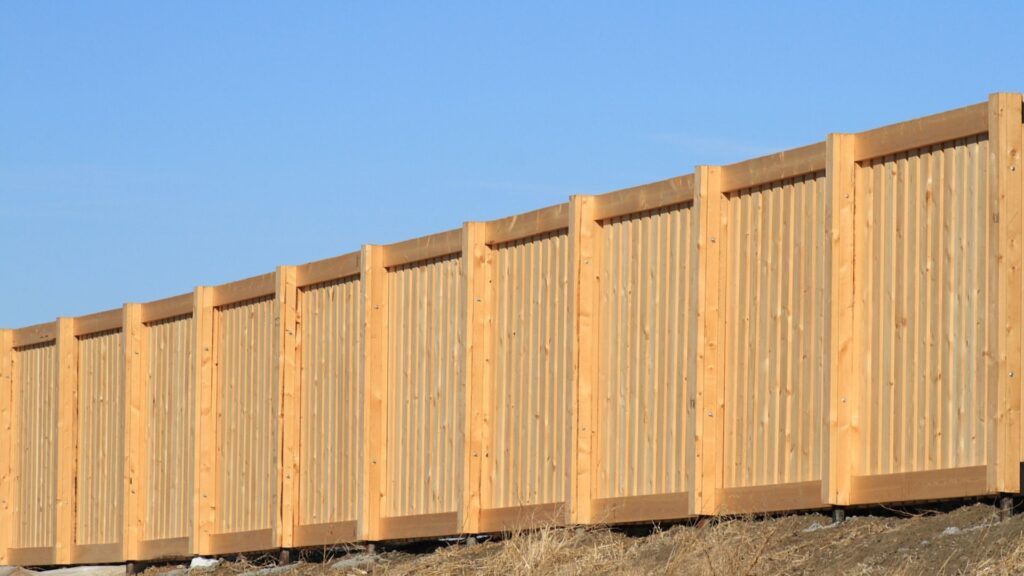
Average Fence Prices In NZ By Type
Understanding the average fence prices in NZ by type helps homeowners make informed decisions when planning their projects. Fence costs can vary depending on the material, design, location, and whether you’re hiring a contractor or building it yourself. Below is a breakdown of the most common fence types in New Zealand along with their estimated price range per metre. These estimates reflect current market rates and serve as a general guide.
Fence Type and Estimated Cost Per Metre:
- Timber Paling: $90 – $180
Timber paling fences are popular for their classic look and strong privacy features. Costs can vary depending on the timber quality, height, and whether it’s treated pine or hardwood. - Colorsteel: $120 – $250
Known for durability and low maintenance, Colorsteel fences are commonly used in modern homes. The price range depends on color choice, panel height, and whether the design includes extra features like capping or posts with decorative finishes. - PVC (Vinyl): $150 – $300
PVC fences are valued for their clean look and longevity. Though more expensive, they require minimal upkeep. Pricing is influenced by color, style (picket vs. privacy), and reinforcement options. - Post And Rail: $70 – $150
This type is commonly used in rural and lifestyle properties. It offers a rustic look and is usually more affordable. Costs vary based on wood type and the number of rails used. - Chain Link: $60 – $130
One of the most cost-effective fencing options, chain link is often used for security, commercial properties, or pet enclosures. Price depends on fence height, wire thickness, and coating (galvanised or vinyl-coated). - Retaining Wall Fence: $200 – $400
These combine a retaining wall with fencing on top, often used on sloped land. They are the most expensive option due to structural requirements and council regulations.
Regional Cost Differences In New Zealand
Fence installation costs can differ across regions. For example, fencing in Auckland, Wellington, or Queenstown typically comes with higher labour rates and material delivery fees. Rural areas may have lower labour costs but higher transport charges for materials. Always get quotes from local contractors to get the most accurate estimate for your location.
Custom Features And Finish Options
The cost of a fence also increases when custom features are added. Extras like painted finishes, decorative posts, custom gates, or reinforced panels will raise the overall price. Fence height is another factor, taller fences use more materials and may require deeper post installations, both of which affect the final quote.
If you’re budgeting for a fencing project, use a fence cost calculator NZ to compare material types, factor in labour, and estimate the total cost. Whether you’re installing a timber fence for privacy or a Colorsteel fence for durability, understanding average prices helps you plan better and avoid surprises.
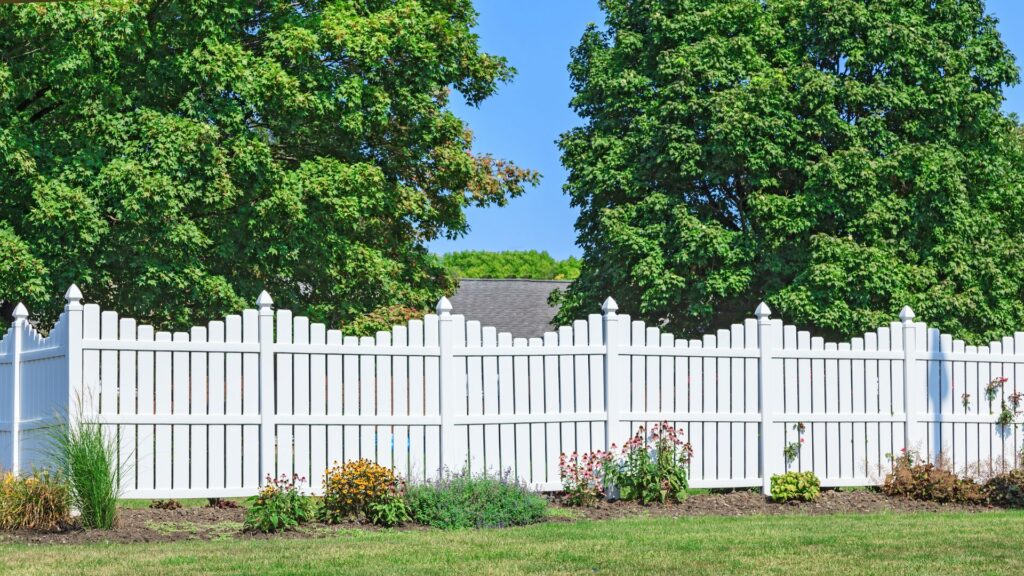
How To Use A Fence Cost Calculator NZ
Using a fence cost calculator NZ is one of the easiest ways to get a fast, realistic estimate for your fencing project, without picking up the phone or waiting on quotes. It helps homeowners, property managers, and DIY builders get a quick idea of what their fence might cost based on the specs they provide. This tool is especially helpful when you’re still in the planning stage and need to understand if your budget matches your goals.
Most reliable fence calculators follow a simple step-by-step process. Here’s how to use one effectively.
Step 1: Enter The Total Fence Length
This is the most basic input. You’ll need to measure or estimate the total length of the fence in metres. If your property has multiple sides or sections, you can usually enter the combined total or input each section individually.
Tip: Walk your property with a measuring tape or use your site plan if available.
Step 2: Select Your Fence Material
Fence materials come with different price tags. Some calculators offer a dropdown list or checkboxes where you can select from options like:
- Timber paling
- Colorsteel
- PVC
- Chain link
- Post and rail
Your material choice will heavily influence the total cost, so choose the one you’re most likely to use. If unsure, some calculators show visual examples or average price comparisons to help you decide.
Step 3: Choose Fence Height
The height of the fence affects how much material is needed and can also impact labour costs. Typical height options include 1.2m, 1.5m, 1.8m, and 2m. Taller fences often cost more due to increased structural support and extra materials.
Tip: Check local council rules before choosing a height, some areas limit how high you can go without consent.
Step 4: Select Your Location Or Region
Fence installation costs vary across New Zealand. Labour rates, access challenges, and material availability differ in Auckland, Wellington, Christchurch, and rural areas. A good calculator lets you select your region to deliver more accurate pricing based on local rates.
Step 5: Review The Results
After entering your inputs, the calculator provides an instant estimate. Here’s what most calculators display:
- Total estimated cost range
(e.g. $2,000–$3,500 depending on materials and labour) - Material cost breakdown
(e.g. timber: $1,800, posts: $400, fasteners: $150) - Optional add-ons
Some tools let you include extras like gates, painting, or retaining walls. These often come with separate pricing so you can decide if it fits your budget. - Next steps
Some calculators recommend contacting a fencing professional for a confirmed quote or letting you email the estimate to yourself.
Step 6: Adjust For Comparison
One of the best features is the ability to adjust different values and compare outcomes. You can test various materials or fence heights to see which setup gives you the best value.
If you want to try a real example, you can visit Zones Landscaping Fence Cost Calculator, a trusted tool designed specifically for New Zealand homeowners.
By using a fence cost calculator NZ, you take the guesswork out of the equation and gain the confidence to move forward with your fencing project. Whether you’re budgeting for your first home or upgrading your property’s boundaries, this simple step can save you time, money, and stress.
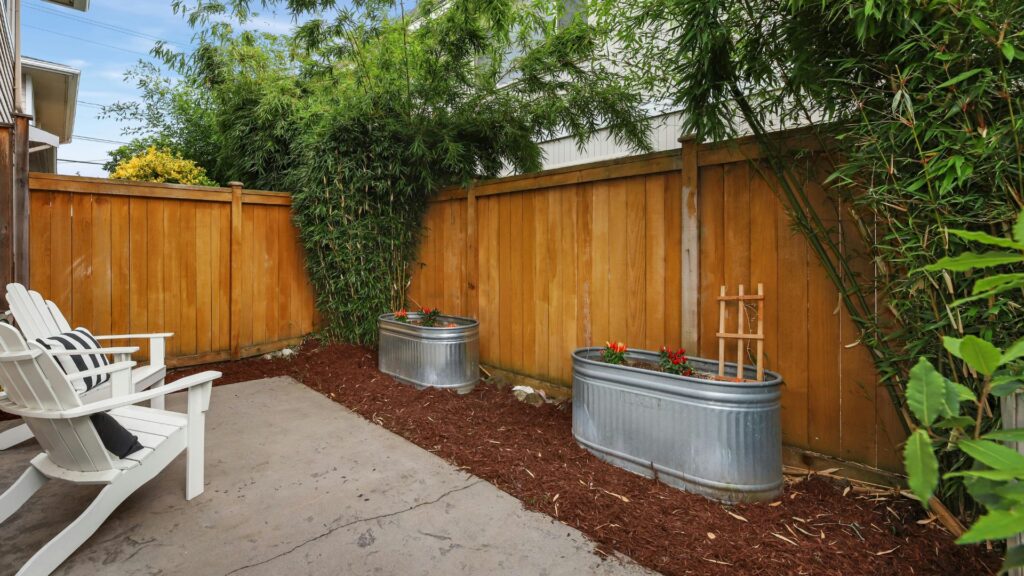
DIY Vs Hiring A Professional
When planning a new fence in New Zealand, one of the first questions that comes up is whether to build it yourself or hire a professional. Both options come with trade-offs, especially when it comes to cost, time, and risk. The best choice depends on your budget, skills, and how confident you feel about tackling a physical outdoor project.
Cost Comparison
DIY fencing is often seen as the cheaper route. You avoid paying for labour, which can make up 40–60% of the total fence cost. But the savings aren’t always as big as they seem. You’ll still need to buy materials, tools, hardware, and potentially a permit. Small mistakes can also lead to extra expenses, like replacing warped timber or fixing leaning posts.
On the other hand, hiring a professional means a higher upfront cost. Labour rates vary across New Zealand, but the convenience, speed, and peace of mind can be worth it. Professionals bring their own tools, know local regulations, and usually guarantee their work. If you’re building a large fence or dealing with difficult terrain, paying for experience often prevents costly issues later.
Time And Effort
Installing a fence takes more than just a weekend. DIY projects often stretch over several days or weeks, especially if you’re learning as you go. Digging post holes, mixing concrete, leveling panels, it’s all labour-intensive work.
Professionals can often complete a standard residential fence in just a day or two. That speed matters if you’re dealing with security concerns or simply don’t want a half-built fence in your yard for weeks.
Risk Factor
Building your own fence means taking on all the risks. If your measurements are off, materials are wasted. If a post isn’t deep enough, the entire fence may lean or collapse over time. There’s also the risk of breaching local regulations, which could lead to fines or mandatory removals.
Professional fencing contractors know how to avoid these problems. They’re familiar with building codes, experienced with different soil types, and trained to spot issues before they become expensive.
Simple Comparison Table
| Feature | DIY Fencing | Professional Fencing |
| Upfront Cost | Lower (no labour costs) | Higher (labour included) |
| Time Investment | High (can take several days/weeks) | Low (usually completed in 1–2 days) |
| Required Tools | Must be purchased or rented | Provided by the contractor |
| Risk Of Mistakes | High (inexperience adds risk) | Low (trained professionals involved) |
| Permit Knowledge | Must research independently | Often handled for you |
| Long-Term Durability | Depends on skill level | Usually longer-lasting |
Real-World Example
Sarah, a homeowner in Wellington, decided to build her own 15-metre timber fence to save money. She spent two weekends on the project, bought all the materials herself, and even rented a post hole digger. By the end, her total cost came to around $1,600. She felt proud, but also admitted it was physically draining, and some of the posts weren’t perfectly aligned.
Meanwhile, her neighbour James hired a professional to install a Colorsteel fence of the same length. It cost him $2,400, and the job was done in two days. James got a five-year workmanship guarantee and didn’t have to lift a finger. Both fences did the job, but the difference in effort and finish was noticeable.
If you’re unsure which way to go, start by using a fence cost calculator NZ to get ballpark figures. Then, weigh up the trade-offs between money saved and time spent.
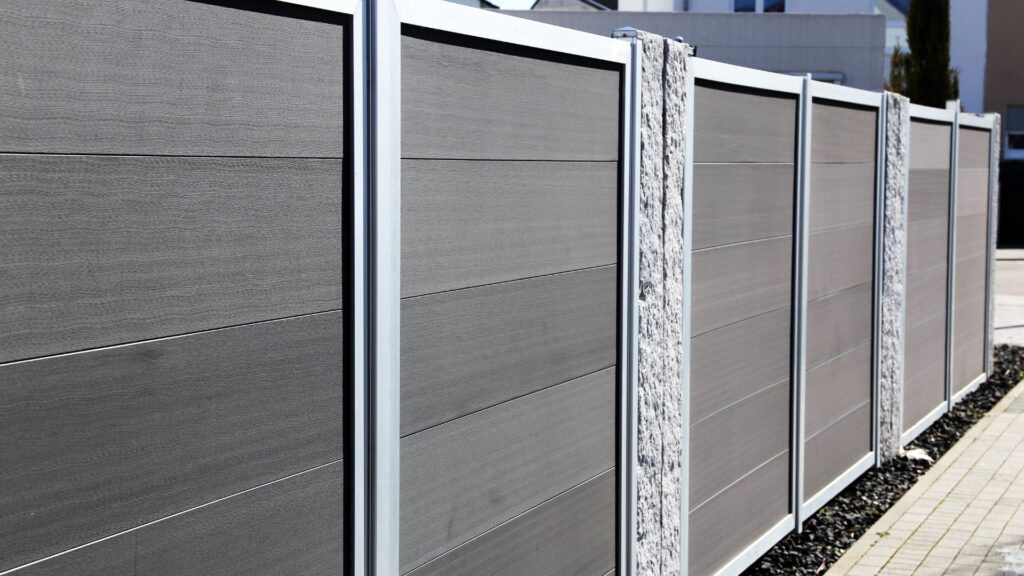
Tips To Save Money On Your Fence Project
Fencing can be a big investment, but there are smart ways to cut down on costs without sacrificing quality. Whether you’re building a new fence for privacy, security, or property boundaries, these money-saving tips will help you stay on budget while still getting the results you want. Here’s how you can keep your fencing project affordable.
- Choose Simpler Materials
Not all fencing materials are created equal, some are far more expensive than others. If you’re trying to save money, start by selecting cost-effective options like timber paling or chain link. These materials are widely available across New Zealand, durable, and easier to install compared to premium options like Colorsteel or PVC. While they might not offer the same sleek finish, they do the job well and are more budget-friendly. - Build Shorter Fences Where Possible
Fence height plays a major role in cost. The taller the fence, the more materials and labour are required. Ask yourself if every section needs to be the same height. For example, you might not need a 2-meter fence around your entire backyard, just along one side for privacy. By adjusting the height strategically, you can significantly reduce costs without compromising on function. - Share Fence With A Neighbour (Split Cost)
If the fence runs along a shared boundary, talk to your neighbour about splitting the cost. It’s common practice in New Zealand and can cut your expenses in half. Just be sure to agree on the material, height, and installer before any work begins. A quick conversation and a written agreement can save you thousands. - Get Multiple Quotes
Don’t settle for the first quote you receive. Prices can vary depending on the contractor, their workload, and your location. Aim to get at least three quotes from different fencing companies. This gives you a better idea of the going rate and helps you negotiate a better deal. It also allows you to compare timelines and customer reviews. - Buy Materials In Bulk
If you’re going the DIY route or managing your own materials, consider buying in bulk. Many suppliers offer discounts for larger orders. Even if you’re working with a contractor, ask if you can provide the materials yourself to take advantage of trade prices or special deals. Just make sure the quality meets the project’s needs.
Following these simple tips can make a big difference in your overall fence budget. Being strategic about materials, height, and planning ahead can keep costs low while still delivering a strong, functional fence that adds value to your property.
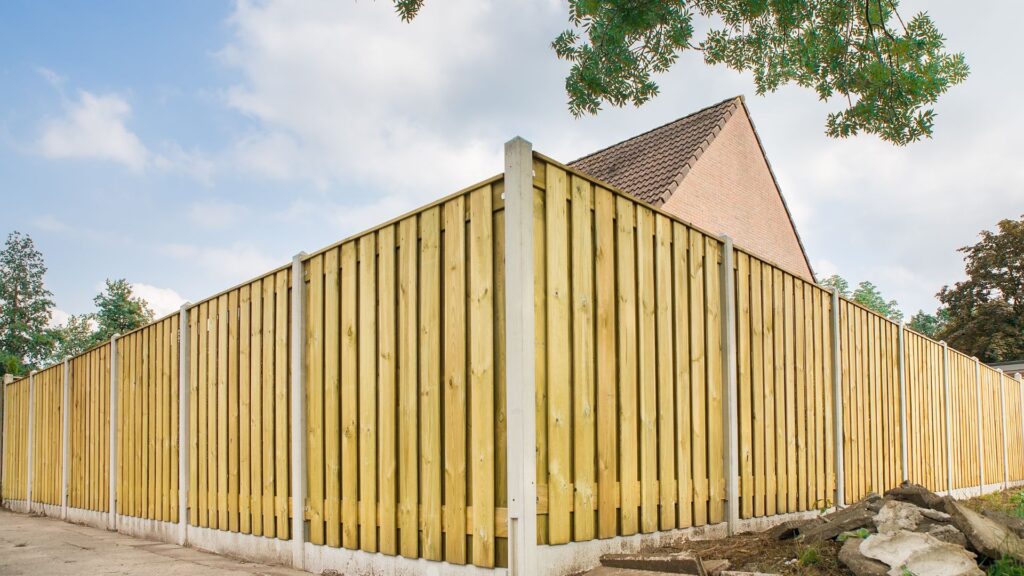
Common Mistakes To Avoid When Planning A Fence In NZ
Building a fence is a big investment, and small oversights can lead to delays, extra costs, or even legal issues. Many homeowners make the same errors when starting a fencing project. You can avoid these by knowing what to look out for early on. Here’s a breakdown of the most common mistakes and how to steer clear of them.
Not Checking With Council
Don’t assume you can build anywhere, at any height. Some councils in New Zealand have strict rules around fencing height, boundary setbacks, and materials, especially if you live in a heritage zone or coastal area. If your fence is taller than 2 meters, you may need consent. Not checking first can result in having to remove or redo your fence, which adds to your overall cost and frustration. Always contact your local council before you start digging.
Underestimating Total Length
Don’t just eyeball the area or guess the length. Measure your boundary lines carefully and double-check property boundaries using your title plan. Underestimating can leave you short on materials, delay the job, and drive up costs. Even a few metres off can affect your budget significantly, especially if you’re using premium materials like PVC or Colorsteel.
Forgetting Gates
It’s easy to focus on the main fencing run and overlook access points. But gates cost money, and they require proper space planning. Whether it’s a single pedestrian gate or a wide driveway gate, you need to factor in hardware, hinges, latches, and extra posts. Don’t forget to include them in your cost estimate and layout plan.
Ignoring Post Depth And Stability
Posts are what keep your fence upright during storms and over time. Don’t rush this step. Shallow posts or improper concrete setting can lead to leaning or collapsing fences. In most cases, posts should go at least 600mm into the ground, more for tall fences or windy areas. Ignoring this will cost you more in repairs later.
Every fence looks simple on the surface, but success is in the prep work. Don’t skip these basics. Plan carefully, take accurate measurements, and always think long-term. A few hours of planning can save you hundreds of dollars and weeks of hassle.
Ready to get a clear estimate for your next fencing project? Try our Fence Cost Calculator NZ and start planning with confidence. Visit us to get started.
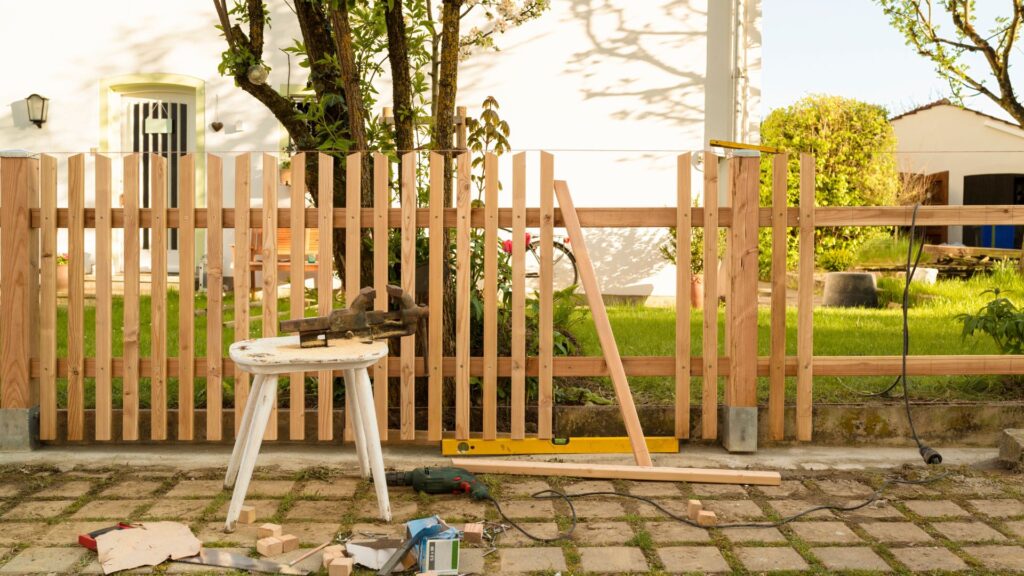
FAQs: About Fence Cost Calculator In NZ
What is a fence cost calculator NZ?
A fence cost calculator NZ is an online tool that estimates fencing costs based on your selected material, fence length, height, and region. It helps homeowners budget before requesting official quotes or starting DIY projects.
How accurate is a fence cost calculator in New Zealand?
While it won’t replace a professional quote, it gives a close estimate based on average market rates. It’s accurate enough for early planning and budgeting purposes.
What materials can I calculate with a fence cost calculator?
Most calculators cover common materials like timber paling, Colorsteel, PVC, post and rail, and chain link fencing. Some may also include retaining walls or decorative options.
How much does fencing cost per metre in NZ?
Fencing costs in New Zealand typically range from $70 to $300 per metre depending on the material, location, terrain, and whether the work is done professionally or DIY.
Do I need a council permit to build a fence in NZ?
In most cases, fences under 2 meters high don’t need a permit. However, local council rules vary. Always check with your city council before building.
What factors affect the total cost of a fence in NZ?
Key cost factors include the type of fencing material, total length, fence height, labour costs, terrain difficulty, and access to the site.
Can I use the calculator for DIY fence projects?
Yes, a fence cost calculator is useful for both DIY and professional projects. It helps you understand material costs, even if you plan to build the fence yourself.
Is it cheaper to build a fence myself or hire a contractor?
DIY projects may save you on labour but can cost more in time, tools, and potential errors. Hiring a pro costs more upfront but often leads to faster and higher-quality results.
Can I split fence costs with my neighbour in NZ?
Yes, in many cases, you can agree to share the cost of a boundary fence with your neighbour. It’s best to have this agreement in writing.
Where can I find a reliable fence cost calculator for NZ?
You can find calculators on fencing company websites or home improvement platforms. Make sure it’s tailored to New Zealand conditions and pricing for the most accurate result.
Conclusion
Using a fence cost calculator NZ is one of the simplest ways to plan your fencing project with confidence. Instead of guessing prices or relying on outdated estimates, a calculator gives you a fast, realistic range based on your location, materials, and fence size. It helps you avoid budget surprises and prepares you to speak knowledgeably with contractors. Before making any decisions or booking an installer, take a few minutes to try a calculator and see where your budget stands. It’s a smart step whether you’re going the DIY route or hiring a professional. If you’re thinking of building soon, use a fence cost calculator to get a head start and then reach out to a local contractor to get a tailored quote that matches your needs.
About the Author:
Mike Veail is a recognized digital marketing expert with over 6 years of experience in helping tradespeople and small businesses thrive online. A former quantity surveyor, Mike combines deep industry knowledge with hands-on expertise in SEO and Google Ads. His marketing strategies are tailored to the specific needs of the trades sector, helping businesses increase visibility and generate more leads through proven, ethical methods.
Mike has successfully partnered with numerous companies, establishing a track record of delivering measurable results. His work has been featured across various platforms that showcase his expertise in lead generation and online marketing for the trades sector.
Learn more about Mike's experience and services at https://theleadguy.online or follow him on social media:
